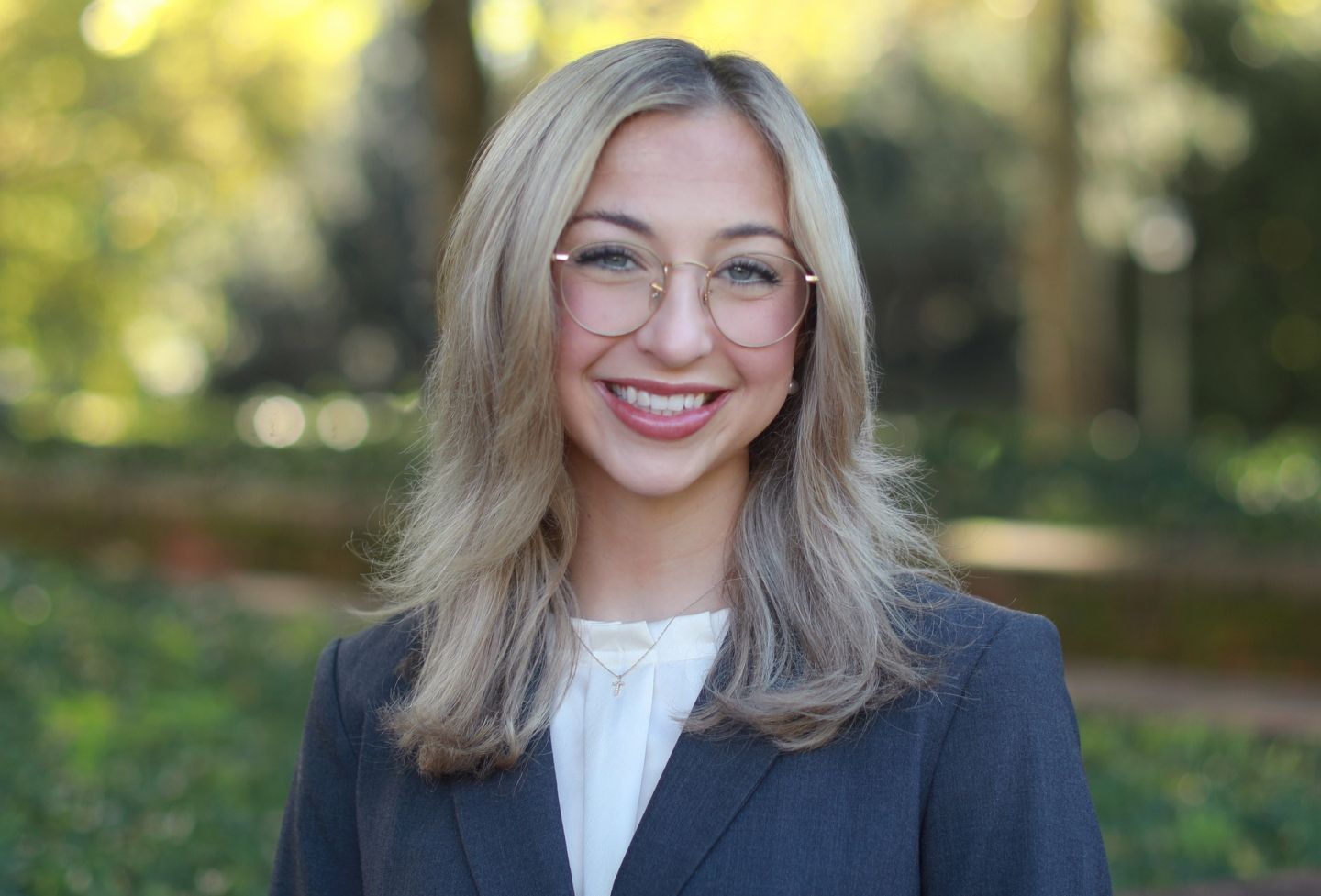The concept of “home” means different things to different people, but to Grace Zipperer ’24, it’s the right for refugees to have a safe place to live because it’s what every human deserves.
Zipperer is the University of Virginia School of Law’s first recipient of the Immigrant Justice Corps’ two-year Justice Fellowship. After graduation, she will move to Yonkers, New York, to work for the Empire Justice Center, defending the rights of unaccompanied children seeking asylum and other immigration benefits.
“Displacement is one of the worst forms of violence because it fundamentally takes away your home,” Zipperer said. “I want to rectify these displacements and make sure people have a safe place to create new homes.”
Zipperer’s own home is not far from North Grounds. She was born and raised in Richmond, Virginia, and often made the short drive to Charlottesville in her college years, visiting many close friends who attended UVA.
“It made it easier to choose UVA Law because I already knew the area and was drawn to the community’s sense of collegiality,” she said. “I was looking for a comfortable space to really be myself.”
Zipperer started her undergraduate degree at George Mason University intent on studying journalism. After she researched and pored over news articles reporting on the displacement caused by the Syrian civil war, she wanted to help tell the story of the associated human rights violations. It wasn’t until she visited refugee camps in Hungary her sophomore year that she realized that, while she loved writing, she wanted to “really do something” to advance human rights.
She has never forgotten the experience of first bearing witness to the “horrific” conditions in refugee camps.
“Even if you spend years studying these issues, until you’re actually there seeing people suffering with your own eyes, you don’t really know what’s going on,” she said.
She had enough credits to finish college a semester early but still wanted to graduate alongside her friends, so Zipperer took the second semester of junior year to volunteer at refugee camps in Greece and Croatia. She taught English and math to teenagers who spoke languages ranging from Farsi to French.
“It was a chaotic environment to say the least, but very rewarding,” Zipperer said.
She also had the opportunity to manage the women’s space in a refugee camp community center on the Greek island of Samos, an experience that inspired her personal statement to law school. The women’s space challenged her idea of Western feminist ideals and made her consider what refugees actually needed and valued versus what outsiders believed they needed.
Zipperer found that having a safe space away from men was what the women refugees valued while living in the camp.
“They needed a space to feel safe and express themselves. Sometimes we would do arts and crafts or put on music and dance,” she recalled.
It showed her that yearning for home is universal.
Once she got to law school, Zipperer decided it was time to get as acquainted with her own country’s border as she had with others. She spent her 1L summer working at a site between Ciudad Juárez, Mexico, and El Paso, Texas.
Zipperer helped displaced persons apply for parole under the previous administration’s Title 42 border policy and she assisted refugees prepare for nonrefoulement interviews to protect their right to seek asylum under U.S. and international law.
“I came away from the experience with a much broader understanding of our border dynamics,” she said.
Her 2L summer was spent clerking for the Board of Immigration Appeals in Falls Church, Virginia, where she wrote opinions for the judges and gained insight not only on the inner dynamics of the Board, but what judges look for in legal analysis.
At UVA Law, Zipperer has served as chapter director of the International Refugee Assistance Project, professional programs chair for Virginia Law Women, a fellow in the Program in Law and Public Service, a member of the Raven Society, and design and technology editor for the Virginia Journal of International Law. She has completed pro bono work for Catholic Migration Services, IRAP and Just Neighbors, among other organizations.
Zipperer knew that applying for a fellowship would help her pursue a public service career. She was interested in working with unaccompanied children and knew the Empire Justice Center was leading the effort.
She considers the fellowship a full-circle moment because she predominantly worked with children in Greece.
“That’s when I decided to become an attorney,” she said. “So now that my first job after law school is going to be working with refugee children again, it feels like this is what I came here to do.”
Zipperer was struck by the Empire Justice Center’s “human-centered” approach and their practice of taking their clients’ appraisal of the case and their own representation services as the top indicator for success.
“I’m excited to start my career with an organization that shares my top values in the work we’re trying to accomplish,” she added.
After completing the fellowship, she looks forward to working in direct client representation and “being as closely connected to people as possible” as a human rights attorney.
“What really calls me to this work is all about home. I don’t think you can fully appreciate and exercise your human rights until you have a safe home,” she said. “Everyone deserves that.”
Founded in 1819, the University of Virginia School of Law is the second-oldest continuously operating law school in the nation. Consistently ranked among the top law schools, Virginia is a world-renowned training ground for distinguished lawyers and public servants, instilling in them a commitment to leadership, integrity and community service.


